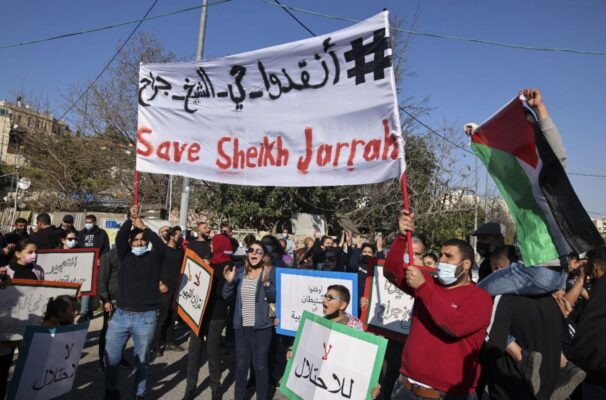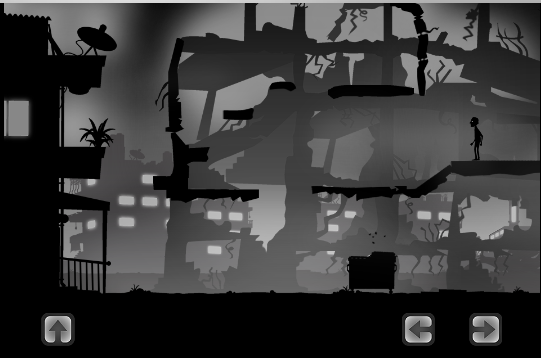
A Palestinian software developer’s work is used to raise money to support people trapped in Gaza’s humanitarian crisis.
Palestinian software developer Rasheed Abu-Eideh has been working in games for more than 10 years.
Now, his work is being used as the center piece of a new charity bundle, available on independent platform itch.io, raising money to support people trapped in Palestine’s continuing humanitarian crisis.
Developed alone by Abu-Eideh over two years, Liyla and the Shadows of War tells the story of a young Palestinian girl and her family living in Gaza during the 2014 war, recalling real-life events that took place during the seven-week conflict over its roughly 15-minute playtime.
Many of the scenes depicted echo more recent events from last month’s attacks against Gaza, in which Israeli bombardments killed more than 250 Palestinians, including 66 children, as well as destroying homes, schools and hospitals.
“Games are one of the best kinds of media to show Palestinian stories,” Abu-Eideh told .
“You have a huge potential to reach millions of people. If they are seeing what is happening on the ground, and they interact with it, they will come to support your case. We saw this happen with Black Lives Matter, and we are experiencing the same thing with the Palestinian cause.
 [Courtesy of Rasheed Abu-Eideh]
[Courtesy of Rasheed Abu-Eideh]
“We don’t just need to raise money for Palestine,” he said. “We need to raise awareness. We need people to understand what is happening on a daily basis. It’s the way I resist this occupation. It’s not a fun thing to do. It’s something I have to do.”
Angered by the suppression of pro-Palestinian voices in mainstream media at the time, Abu-Eideh became determined to find a way to express the frustrations and grievances of his countrymen to a wider, global audience.
“I tried to translate the feelings that the Palestinians have and what they go through in their lives,” said Abu-Eideh.
“Through Liyla, I tried to put players in that experience. It feels like your decisions do not matter. Whatever decision you take, it will not change anything because you are living under occupation and under attack.
“I was also thinking about the families and the kids,” he said. “If I lost one of my kids in such an attack, how would I react? How does it feel? I wanted people to understand how hard it is to be in such a situation. I couldn’t just ignore the feeling of not doing anything.”
 Four boys play football on the beach in Gaza
Four boys play football on the beach in Gaza
Upon its original release in 2016, the game was initially rejected by Apple’s App Store because of its political commentary. The resulting social media pushback from the wider gaming community boosted awareness of Abu-Eideh and his project, generating an unexpected surge of support and critical praise.
“Websites and journalists were talking about the game and making it more popular,” said Abu-Eideh. “It was a breakthrough, I think. I was nominated for many awards and I participated in so many events around the world. It was shocking, in a weird way.”
Initially featuring about two dozen games, support for the bundle quickly mounted. In a matter of days, hundreds of creators and tens of thousands of contributors had rallied behind the campaign as word spread.
“This is huge,” said Abu-Eideh. “This shows how much the perspective is changing about the Palestinian story.”
 The game was initially rejected by Apple’s App Store because of its political commentary
The game was initially rejected by Apple’s App Store because of its political commentary
In addition to Liyla and the Shadows of War, donors will receive access to hundreds of games, assets and soundtracks, all of them donated for free by other game developers and media creators from across the globe.
The bundle was put together by Alanna Linayre, founder and creative director of Toad house Games, an indie game studio based in New York that specializes in creating games with the intent of destigmatizing mental illness and promoting self-care.
As a person living with post-traumatic stress disorder (PTSD), she was inspired to action after watching videos taken by Palestinians during the most recent Gaza attacks. “I could see many of the same symptoms I have forming in young children,” Linayre told Al Jazeera.
“I thought a game bundle would be a good idea, to help in a small way. I didn’t expect for it to have the reach that it ended up having, but I’m very grateful that it grew beyond my original intentions.
“Too often, the conversation around helping others doesn’t involve those receiving the help,” she said. “It was brave and wonderful for Rasheed to graciously allow us to highlight his game. Interactive media is rooted in active involvement.”
At the time of writing, the pay-what-you-want campaign has raised more than $650,000, far surpassing its initial funding goal of $500,000. The proceeds will go to the United Nations Relief and Works Agency, providing food assistance and protections for Palestinians in Jerusalem, Gaza and the West Bank.
“I just want to thank everyone,” said Abu-Eideh. “This amount is crazy. Even if a person didn’t have enough money to contribute and they just shared or tweeted or posted about this, or just liked a post about this, I want to thank everyone.”
